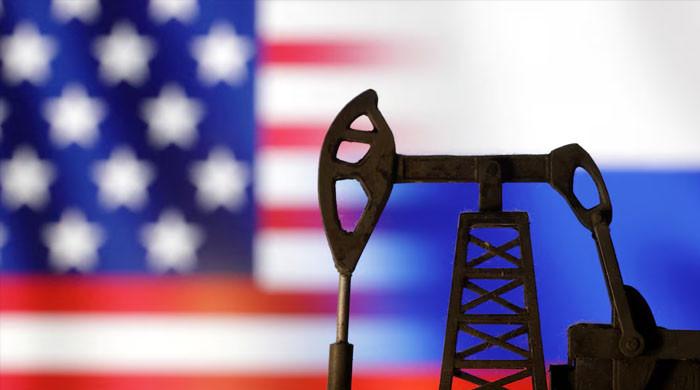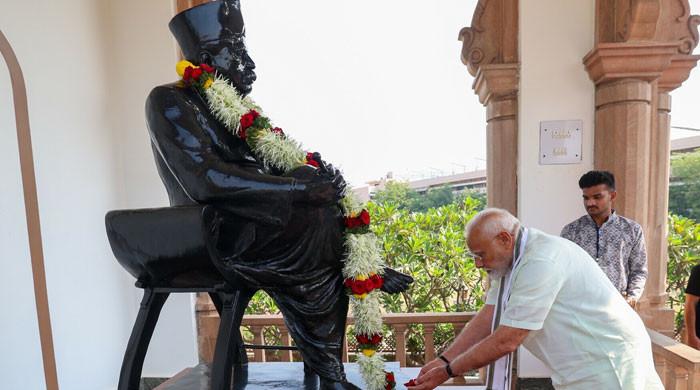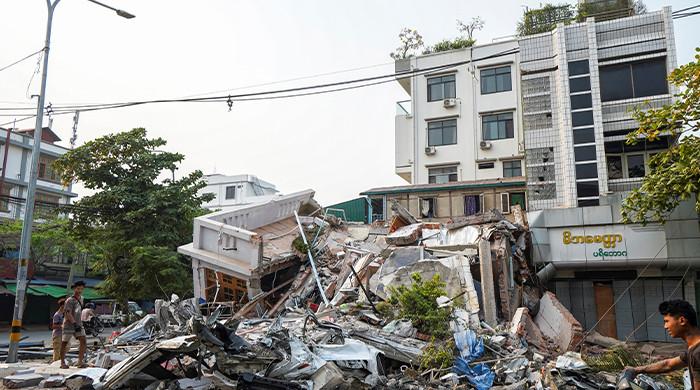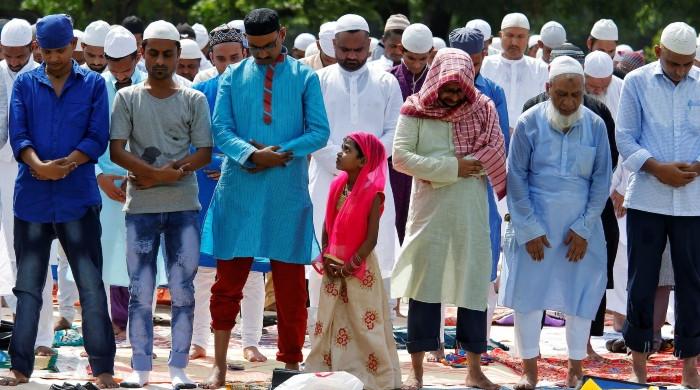In New Mexico, Muslims reject sectarian label for killings
"It wasn't sectarian, it was extremism," says prime suspect's refugee resettlement case worker
August 18, 2022
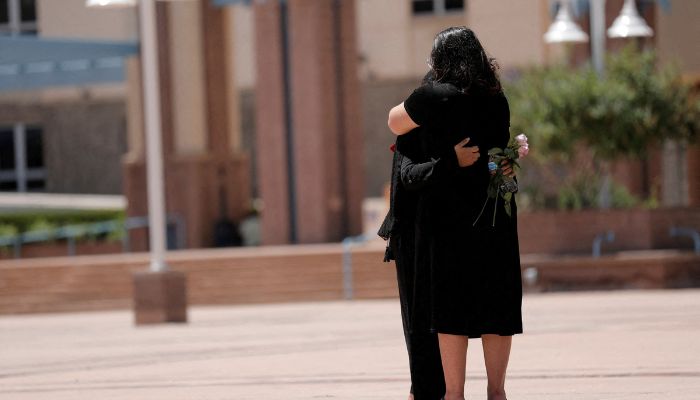
- National Muslim groups have linked the killings of four Muslims to sectarianism.
- Police last week arrested Afghan refugee Muhammad Syed, 51.
- Detectives said an "interpersonal conflict" may have driven the shootings.
National Muslim groups have linked the killings of four Muslim men in New Mexico over the past year to sectarianism, but Muslims who knew the victims and suspected gunman point to revenge and personal feuds as possible motives.
Police last week arrested Afghan refugee Muhammad Syed, 51, as the prime suspect in the shootings of four Muslim men in New Mexico's largest city, Albuquerque. Syed has denied involvement.
Detectives said an "interpersonal conflict" may have driven the shootings of men of Afghan or Pakistani descent.
A judge on Wednesday ordered Syed remain in custody pending trial based on charges he murdered two of the men and his history of fleeing law enforcement. His lawyer had requested bail, arguing Syed complied with release requirements in 2018 and 2019 after he was arrested for assaulting family members.
The Council on Islamic-American Relations (CAIR) was among Muslim advocacy groups that have condemned the killings as possible "sectarian hatred."
Abed Ayoub, legal and policy director of the American Arab Anti-Discrimination Committee, said the killings were clearly sectarian. The Shia Racial Justice Coalition “condemned the heinous targeted killing of Shias.”
Sectarian tension is flaring in the Middle East and South Asia, including in Afghanistan where the Muslim minority sect is frequently attacked by the militants belonging to extremist views.
However, local Muslim leaders in New Mexico said it was inaccurate to call the killings sectarian, and feared the label could damage relations between the two sects who pray together at the Islamic Center of New Mexico, Albuquerque's main mosque. The United States has not experienced significant sectarian tensions.
"The simplicity of saying this is a sectarian hate crime is so reckless," said Samia Assed, a Palestinian-American human rights activist who hosted an interfaith vigil for the victims.
Mazin Kadhim was Syed's refugee resettlement case worker when he arrived in Albuquerque about six years ago. When Syed's daughter Lubna Syed married Iftikhar Amir, a member of the Shia sect, against his will in 2018, Syed's traditional male authority was challenged and he was humiliated, Kadhim said.
Syed has been charged with the July 26 murder of Amir's friend Aftab Hussein, 41, a cafe manager and recent immigrant.
Kadhim said Syed harbored hatred toward Shias but believes Hussein's death was a revenge killing for his daughter and son-in-law's defiance.
"It wasn't sectarian, it was extremism," said Kadhim, a Shia who helped organise a Muslim unity march on Friday.
Lubna Syed declined to comment.
Afghan-American business owner Mula Akbar said Syed, a truck driver, treated women as "property," seldom worked, and would try to illegally exchange digital food stamps for cash at stores, including his own.
The food stamp scheme led to a dispute with supermarket owner Muhammad Ahmadi, 62, Akbar said. Ahmadi was shot dead on November 7, 2021, in killing police linked to the three other deaths in July and August of this year.
Syed's son Shaheen, 21, was arrested last week on firearms charges after providing a false address when he bought a rifle. During a Monday bail hearing for Shaheen, federal prosecutors linked the younger Syed to the August 5 killing of Naeem Hussain, 25, a truck business owner. Shaheen Syed's lawyer called the allegations "speculative."
Imtiaz Hussain, a relative of a victim, does not believe sectarian hate played any role in the August 1 killing of his brother Muhammad Afzaal Hussain, 27, a city planning director who was Sunni. He dismisses claims he was mistaken as a Shia. Syed was charged in the killing.
Imtiaz Hussain, a 41-year-old Pakistani lawyer, said he met Syed a few times at Albuquerque's main mosque. Once, Imtiaz Hussain said he and his brother talked to Syed about Syed's time as a refugee in Quetta, Pakistan after he left Afghanistan.
"He must have observed us praying in the same pattern as all others do," said Imtiaz Hussain, who believes his brother was shot by more than one person.
Police are working with prosecutors on charges for the deaths of Naeem Hussain and Ahmadi.




